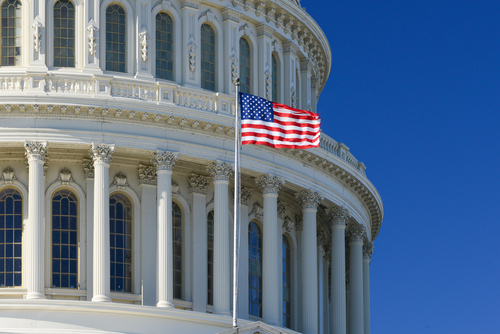
U.S. Reps. Brian Fitzpatrick (R-PA) and Salud Carbajal (D-CA) reintroduced legislation on Dec. 7 that would eliminate the gas tax in exchange for taxing greenhouse gas emissions.
The bill, the MARKET CHOICE Act, H.R. 6665, which aims to diminish the impact of emissions while making investments in American infrastructure systems, would also establish the National Climate Commission to set goals and review the effectiveness of the federal government’s emission reduction policies and programs.
“As COP28 meets this month and as the United States moves into the third year of the implementation of the Infrastructure Investment and Jobs Act, two of our nation’s greatest problems continue to persist without any long-term solution,” Fitzpatrick said. “Our bipartisan MARKET CHOICE Act lays out a bold, comprehensive framework for how the United States can improve affordability for American families, create innovative new job opportunities, further reduce greenhouse gas emissions, and substantively invest in our physical infrastructure for generations to come.”
The bill would direct money raised by the emissions tax to address chronic maintenance funding shortfalls, as well as invest in new infrastructure and renovation of existing infrastructure to adapt to extreme weather events and other climate driven issues.
“Climate change demands our immediate attention, and the Market Choice Act is a crucial way to move the ball forward while revitalizing our infrastructure and promoting prosperity across our nation,” Carbajal said. “Not only will this bill tackle carbon pollution, it will also create economic opportunities for communities like mine on the Central Coast and support thousands of good-paying jobs to make sure our clean energy transition is one that grows our middle class as well.”
The bill is supported by a number of environmental groups including the Alliance for Market Solutions, Center for Climate and Energy Solutions (C2ES), Citizens’ Climate Lobby, and the Evangelical Environmental Network.
“It’s time for the U.S. to seriously consider a carbon tax. It’s the only policy that addresses two of our country’s most pressing problems: climate change and fiscal instability,” Alex Flint, executive director of Alliance for Market Solutions, said.